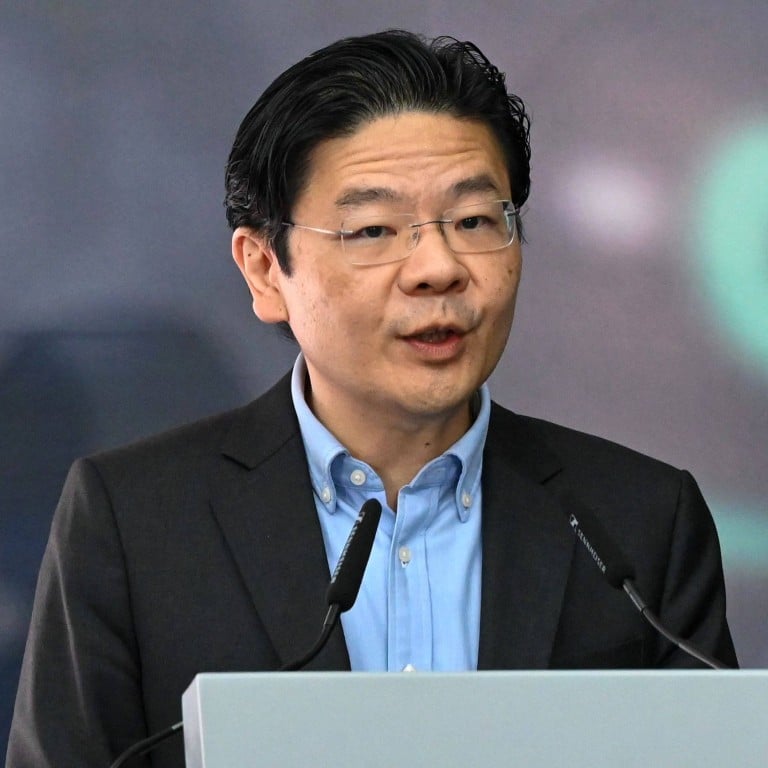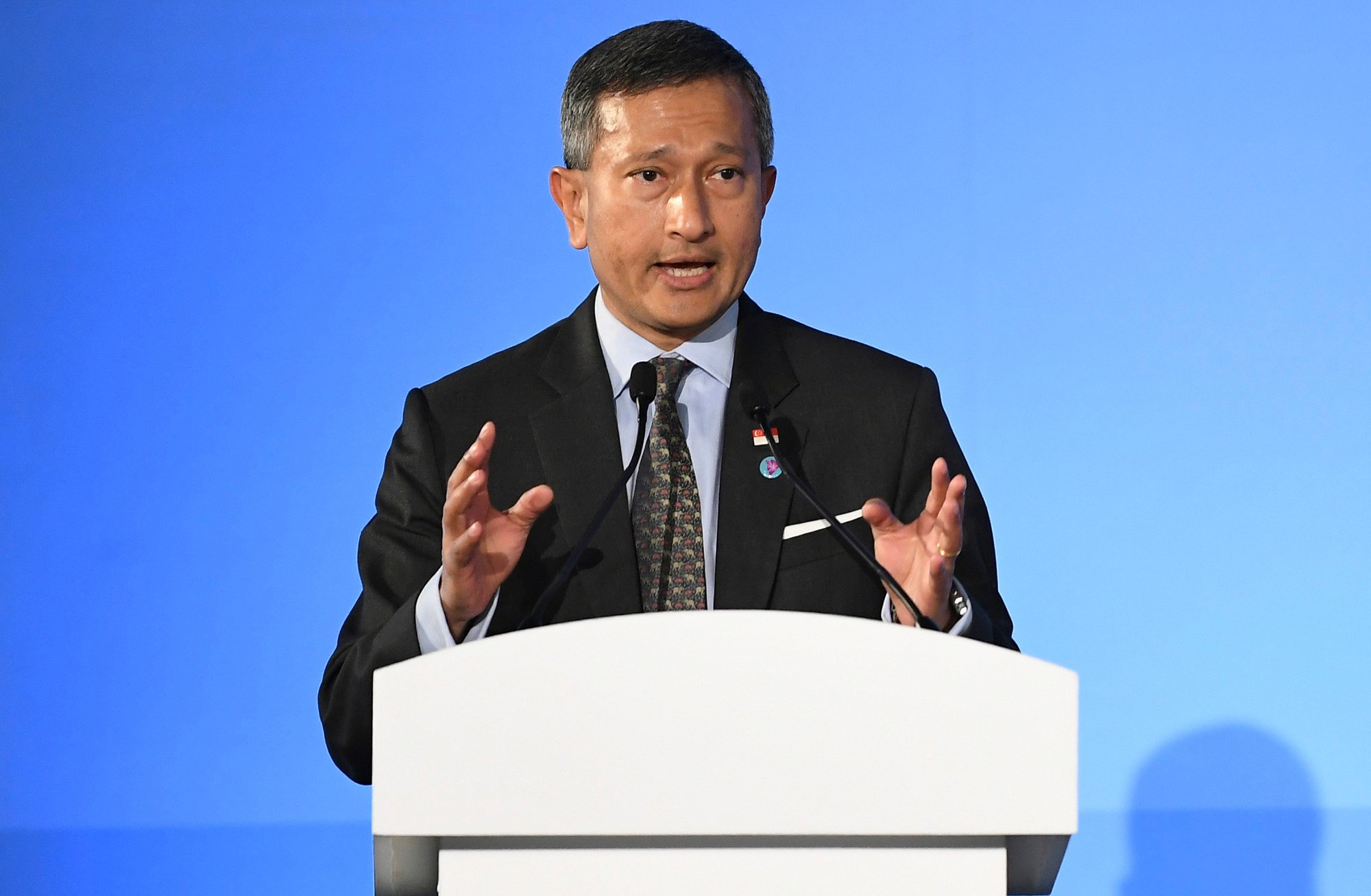
Singapore won’t let Israel-Gaza war divide multiracial society, compromise security: Lawrence Wong
- The city state’s No 2 leader says Singapore must consistently take a principled position in line with international laws, amid a rise in divisive rhetoric
- It is in Singapore’s interest to condemn Hamas’ acts of terrorism and to do otherwise ‘would be to compromise our own security’, Wong adds
The city state must “consistently take a principled position, in line with international law and in support of global peace and security”, he said during an hours-long parliamentary session to discuss the conflict.
No events linked to Israel-Gaza war allowed in Singapore amid ‘safety’ concerns
Most recently, Singapore had voted in support of a UN resolution calling for an immediate and sustained humanitarian truce and assistance for the Israel-Gaza war.
While the Palestinian people had many historical grievances which “we empathise with”, there could be no justification for the attacks and such terrorist acts must be condemned unequivocally.
“Let’s be clear, it’s in our national interest to do so. To compromise on this stand, would be to compromise our own security,” Wong said.
And while Israel had a right to defend itself in doing so, it must “comply fully with the letter and spirit of international human humanitarian law and the rules governing the conduct of war”, he said.
“No matter how gruesome the acts of terrorism committed by Hamas, they cannot justify a disproportionate response by Israel that imposes collective punishment on the Palestinians in Gaza,” he said.
More than 74 per cent of the republic’s population is Chinese, there is a sizeable Malay-Muslim population of around 13 per cent, and 9 per cent are Indians, according to official statistics. The government has laws and policies in place to guard racial and religious relations.
Wong stressed that Singapore would continue to take an approach aligned with international laws and in accordance with its national interest, which he said was “what makes a small nation like us a credible, reliable and trusted partner on the international stage”.
In Indonesia and Malaysia, anti-Israel boycotts of brands gain momentum
He was speaking after MPs had filed about 40 questions about the war, on issues such as how potential divisions along racial and religious lines would be dealt with.
Wong urged citizens not to allow the conflict to divide the country, despite “individual passions” that may be inflamed by videos and images of the conflict.
“This can turn a faraway conflict into an emotionally charged issue that can easily spiral out of control, even here in Singapore,” said Wong, citing examples of hate speech and religiously motivated attacks occurring since the outbreak of the war.
Authorities have received eight reports of offensive remarks or actions targeted at members of the Jewish and Muslim communities last month. This was the same as the total number of reports received in the preceding nine months, he said, describing this as a “sharp spike” in cases, and warning that Singapore was “not immune” to divisive forces that existed elsewhere.

Singapore’s foreign minister, Vivian Balakrishnan, also sought to explain the country’s relationship with both sides and how it arrived at its stance on the war.
“It’s not a secret that we do have a good relationship with Israel. But a good relationship does not mean we have to agree with everything they do nor are we apologists for what they do, specifically on the issues of occupied territories and settlements,” he said.
During the debate, opposition MPs also stated their position, as both Wong and Balakrishnan stressed that “politics must stop at the water’s edge” and called for a unified position on how the country should approach the conflict.
Singapore’s Ministry of Home Affairs on Monday also issued a warning that those caught publicly displaying or wearing foreign national emblems related to the war without a permit may be jailed for up to six months and fined up to S$500 (US$370).

